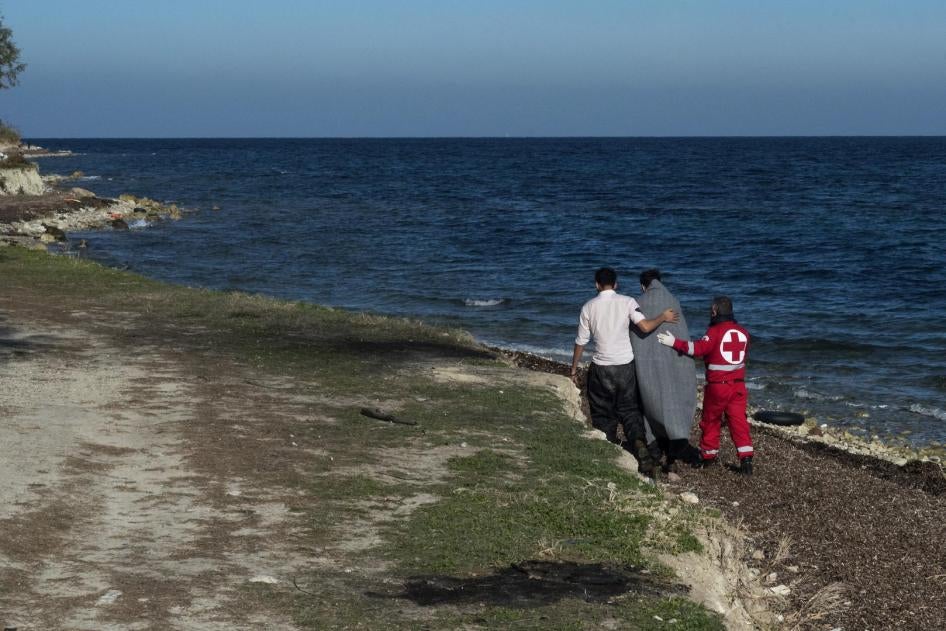Pressure is building on Afghan and Somali refugees to go home, even if they no longer have homes to return to. It is not surprising that this pressure is coming from governments that have been hosting huge numbers of refugees and want to end what seems to them like a never-ending burden. What is surprising is that the United Nations refugee agency, UNHCR, is facilitating refugee returns to places that it knows cannot accommodate them and that may put their lives in danger.
Take Somalia. The UN issued a press statement on Feb. 21 saying that because of an intense drought, internal displacement is growing and 150,000 people have been forced to leave their homes since November. Yet the same press release says, “The drought comes as UNHCR continues its voluntary repatriation programme for Somali refugees” living in Kenya.
Then, there is Afghanistan. On Feb. 18, the UN announced that fighting in the country had forced more than 650,000 people from their homes in 2016, with another 15,000 internally displaced so far in 2017. The same notice says that UNHCR’s “voluntary repatriation” program to help send Afghans living in Pakistan back home “is scheduled to resume on 1 April 2017 following the winter pause.”
In 2016, Pakistan used this program to coerce 621,000 Afghans back to Afghanistan, including 371,000 registered refugees, many of whom lived in Pakistan for decades. At least half of them did not return to their homes but rather joined the ranks of the 1.5 million internally displaced in Afghanistan.
Stop and think about this: pressured by the governments of Kenya and Pakistan, UNHCR facilitates so-called voluntary repatriation to unsettled and dangerous situations in Somalia and Afghanistan, even as the number of people displaced by violence and environmental disaster in those countries grows.
It might be understandable that Kenya and Pakistan — having hosted large refugee populations for decades — would feel that they have reached the limit of their tolerance. In the past, when such front-line states faltered, donor countries stepped up to support them.
Today, these same donor countries seem more concerned with stemming the flow of Afghans and Somalis across their own borders and finding ways to deport rejected asylum seekers to those very countries.
As the number of asylum claims from Afghans in the European Union has grown from 30,000 in 2013 to almost 200,000 in 2015, their approval rate fell from 67 percent in 2014-2015 to 52 percent in the first nine months of 2016, and European member states have been seeking ways to step up deportations. In early October 2016, the day before a donors conference on Afghanistan, Europe signed a “declaration” with Afghanistan on migration cooperation that commits Afghanistan to ease the return of rejected asylum seekers.
In December, UNHCR communicated to the German Ministry of Interior that returns from Pakistan had already swelled the number of people living in settlements for the internally displaced in Kabul, Afghanistan’s capital, and warned that “the city’s absorption capacity has been extremely limited due to the low availability of livelihoods . . . appropriate shelter, and access to basic services, particularly health and education.”
This was a helpful reality check about the impact of deportations from Europe and an implicit acknowledgement of the effect of far larger returns from Pakistan, about which it remained publicly silent, even amid police harassment and other coercive measures to force refugees out.
The UN refugee agency increasingly feels like the last bulwark for refugee protection. But where is its voice? In the hope of remaining relevant to donor concerns — and to keep them donating — it appears to have put a premium on trying to show them that it can help resolve protracted refugee situations, even though it is unable to change the realities in the home countries that prevent refugees from returning safely. In doing so, the UN agency appears to have lost sight of its fundamental refugee protection mandate.
As states increasingly look for a UN partner to help them manage migration and contain refugee flows, UNHCR will feel a powerful pull to cooperate with them. But with so few governments left to champion the rights of refugees and so many countries willing to run roughshod over fundamental humanitarian principles, UNHCR needs to stay true to its core mandate.
Now more than ever, it needs to summon the courage to say no to supposed humanitarian solutions that deny refugees real choices and turn a blind eye to the realities they face.










